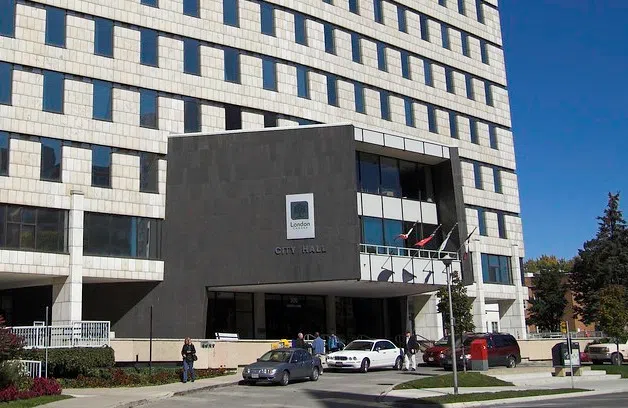
London City Hall (credit: XFM News)
Every four years, London’s Governance Working Group (GWG) is mandated to consider the issue of council compensation. While it is not required to recommend any salary adjustments, the opinion of some city council members is that competitive salaries are necessary to attract the best possible candidates for the positions.
“You’ve got to pay a fair wage to do that,” says Deputy Mayor Shawn Lewis, who chairs the GWG. “When you look at other cities, I think there’s an argument to be made that London is among the lowest-paid city councils in the province of Ontario.”
Currently, city councillors in London are paid an annual salary of $65,137, an increase of 114 per cent from 15 years ago.
To compare this with other pay increases in the province over the same period, average hourly wages have increased by 48 per cent (as of 2023, according to Statistics Canada) and the provincial minimum wage has increased by 74 percent.
To explain the large salary increase, Lewis says that the job was undervalued for a long time, and that the increasing workload for councillors means that it can no longer be considered a part-time position.
“It is a seven-day-a-week role. It is early mornings, it is late nights, it is whenever you are needed, and that is not an average job”
Other benefits for city council members have been eliminated during this time as well, such as stipends for council members who chair committees, and a policy that exempted councillors from paying tax on one-third of their salary.
While Lewis points to cities, like Burlington, where he says city councillors make over $100,000 a year, Franco Terrazzano, the Federal Director of the Canadian Taxpayers Federation, says that’s the wrong comparison to make.
“They shouldn’t be comparing themselves to other highly-paid politicians,” he says. “They should be looking at taxpayers’ ability to pay. All across Canada, including in London, people are going through a really hard time and Council shouldn’t be making those tough times more difficult by giving themselves a raise and hiking property taxes.”
Property taxes in London are already being raised by an average of 7.5 per cent annually over the next four years, in part to pay for a budget increase of $672 million for London Police Services, and $18.6 million for London Transit.
Besides the possibility of a salary increase, Lewis says that the GWG will be looking to outline more specific job descriptions for city councillors, and potentially setting an indexing formula going forward to determine salaries.
“Let’s create a good formula, and a good structure, so that we don’t have to have this discussion again for 20 years,” he says. “Let’s put a model in place that works, and then take it out of the politicians’ hands, let the formula do its work and allow that to keep people up with the cost of living in our community.”
The GWG meeting agenda is available here. If the group decides to proceed, they will appoint a Council Compensation Review Task Force, made up of community volunteers with relevant experience in government.



